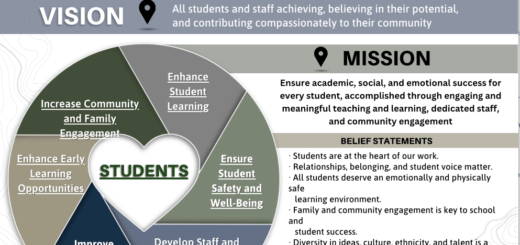Magnus: Students are more than just test scores
One defining characteristic of great teachers is that they never give up on kids. They are relentless in finding ways to make meaningful connections with every student they interact with.
Jon Magnus, a French teacher at Wenatchee High School, tells a story that illustrates this point. Several years ago, he had an freshman who spent an entire year sitting in the back of the class, not paying attention. The young man was angry and uncommunicative. His long hair was combed over his face, his cheeks were perpetually red, and he clearly had been taking drugs, Magnus told me. He took it as a personal challenge to try to reach that young man who was obviously hurting.
Along with other teachers at the high school, Magnus continually reached out to this student and told him that he was capable of being an excellent student. They worked to learn his background and, bit by bit, the truth came out. “This student later told me that he had been drowning his need for human connection in substance abuse, angry behavior and girls,” Magnus said.
By not giving up on the student, treating him with respect and continuing to encourage him, this young man turned his entire life around. By his senior year, he was one of the top students in the class, said Magnus.
We have many kids in school these days who have come from tough backgrounds and who bear the scars of neglect, abuse, food insecurity and homelessness. Some kids have the resilience to fight their way out of their personal morass and rise above the challenges. But many others need the encouragement of a* teachers and counselors to help them build the confidence they need to be successful.
Many of these kids, but certainly not all, are from poverty. There are emotionally wounded kids from all walks of life. This is the reality that teachers face in classrooms today.
Finding ways to make meaningful connections with kids who are wounded is something that often doesn’t factor into how we measure success in our schools. But every excellent teacher I have had the opportunity to get acquainted with brings this same commitment to finding ways to meaningfully connect with students from diverse backgrounds and experiences.
At the end of the day, it is the human connection between teachers and students that make the difference in education.
Teaching in these circumstances is a human endeavor. It involves more than the simple application of appropriate techniques. A clear understanding and appreciation of this reality enables us to define more effective ways of judging schools and teachers. It is impossible to define the “whole” student with standardized test scores alone.
“One of my students once asked … ‘when are they going to realize that I am more than just a test score?’” Magnus recalled.


